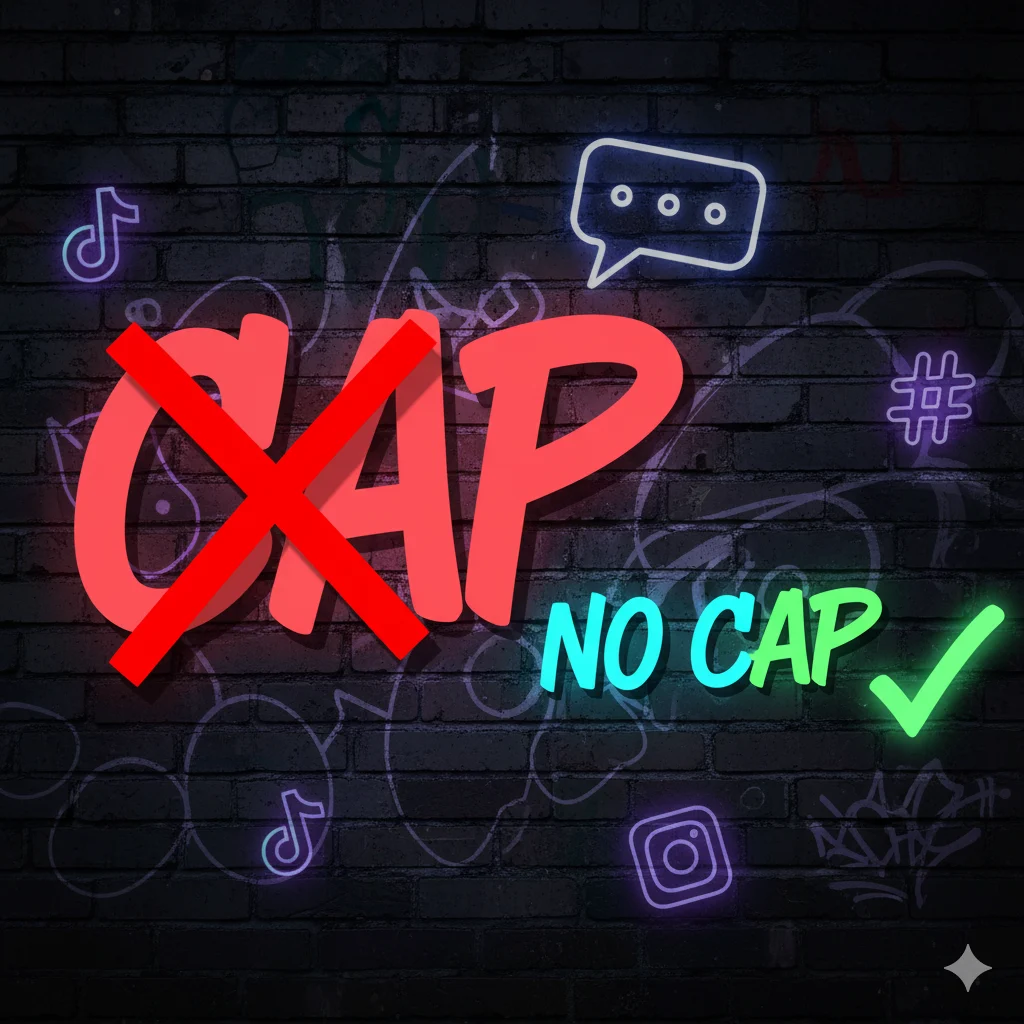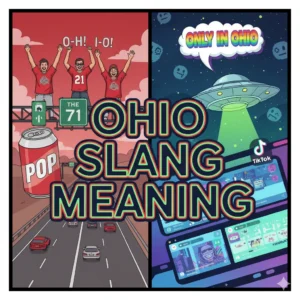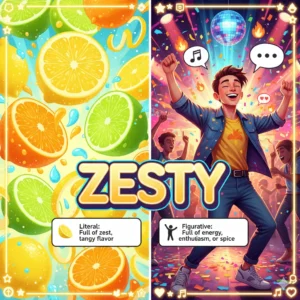Language is always evolving, and slang is the fastest-moving part of it. If you’ve been on TikTok, Twitter (X), Instagram, or in rap music, chances are you’ve come across the term “cap” or phrases like “no cap”. But what exactly does “cap” mean in slang? Where did it come from, and how should you use it?
This article will break down the slang meaning of “cap,” its origins, how it’s used in different contexts, and even how it compares to other slang terms. By the end, you’ll not only understand what “cap” means—you’ll also know how to use it like a native speaker of internet culture.
What Does “Cap” Mean in Slang?
In slang, “cap” means a lie, exaggeration, or something that isn’t true.
- Saying someone is “capping” means they’re lying.
- Saying “no cap” means you’re telling the truth, being serious, or not exaggerating.
Example:
- “He said he ran 10 miles this morning—big cap.”
- “I really love this song, no cap.”
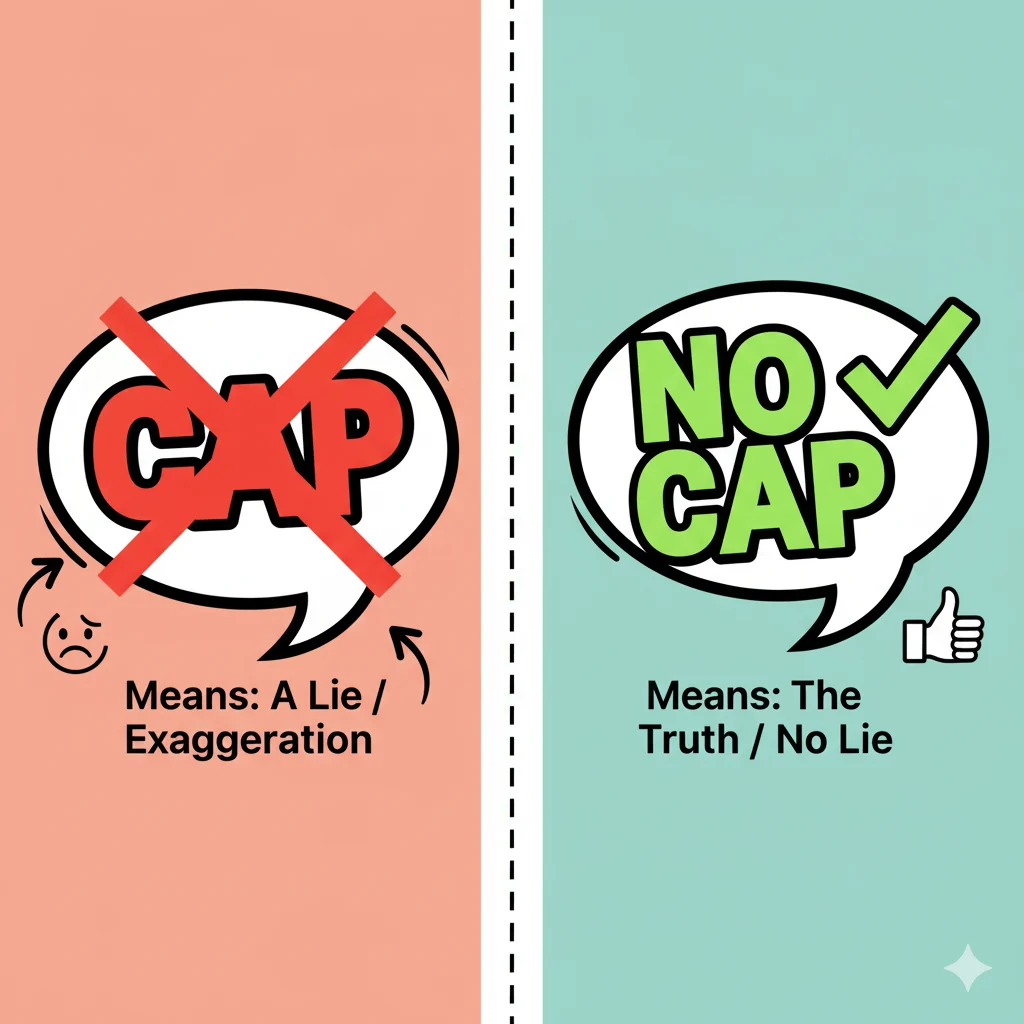
The Origins of “Cap” in Slang
The slang use of “cap” dates back to African American Vernacular English (AAVE) and has deep roots in hip-hop culture.
- Early use: In Southern hip-hop communities, “cap” originally referred to “bragging” or “lying.”
- 1990s–2000s: Rappers like UGK and Too Short used it in their lyrics.
- 2010s onward: The term became mainstream through rap lyrics, internet memes, and TikTok.
- “No cap” popularized: Rapper Young Thug and Future used “no cap” frequently in songs, which helped spread it worldwide.
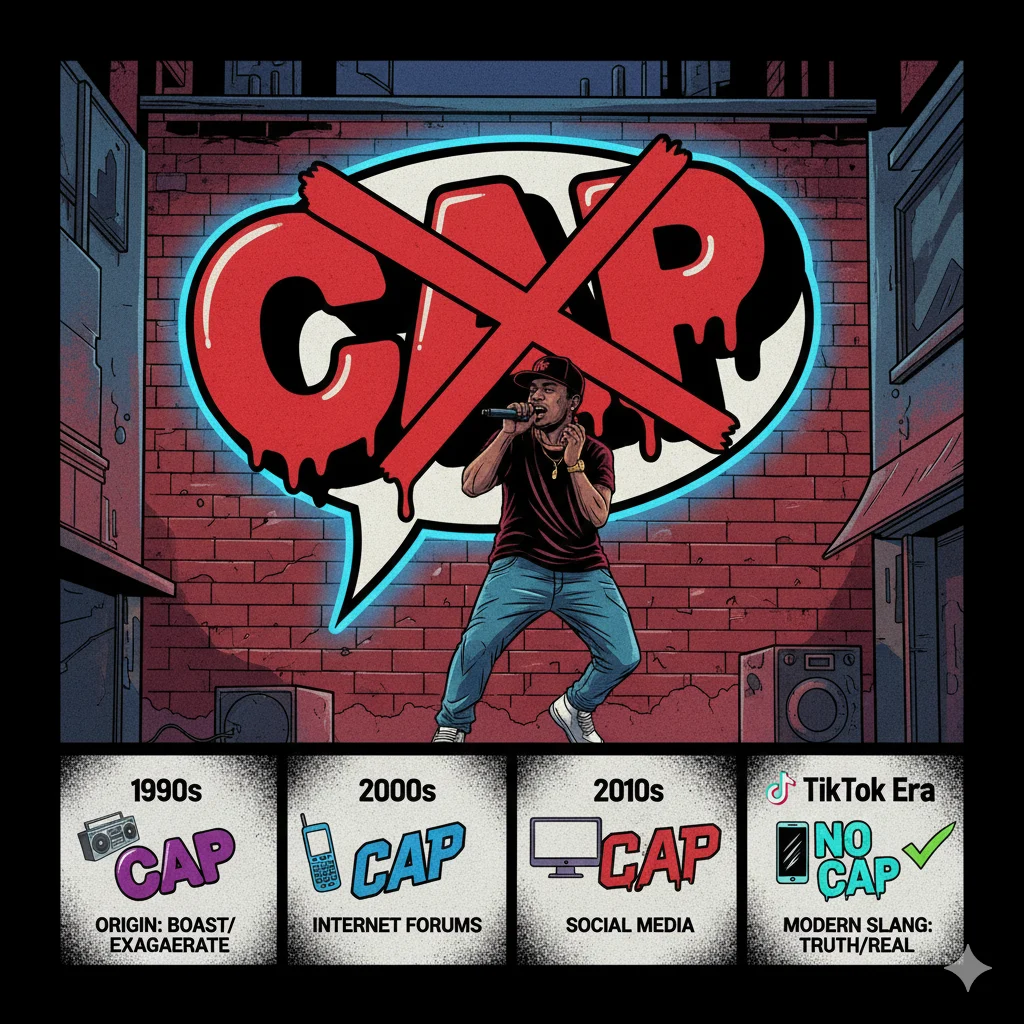
Different Uses of “Cap” in Everyday Language
The word “cap” can mean slightly different things depending on context. Here’s how people commonly use it:
- Cap = Lie
- “He said he’s the best player on the team. That’s cap.”
- Cap = Exaggeration
- “This party’s gonna be the best ever!” → “Man, that’s cap.”
- No Cap = Truth
- “I’m gonna get this job, no cap.”
- Stop the Cap = Stop Lying
- “Bro, you did not meet Drake. Stop the cap.”
- Big Cap = Huge Lie
- “She said she speaks 5 languages—big cap.”
Examples of “Cap” and “No Cap” in Conversations
Here are some real-life examples so you know exactly how to use it:
- Friend 1: “I can bench 400 pounds.”
Friend 2: “That’s cap.” - Friend 1: “This is the best pizza in town, no cap.”
Friend 2: “Facts!” - Online comment: “He said he invented that dance—stop the cap.”
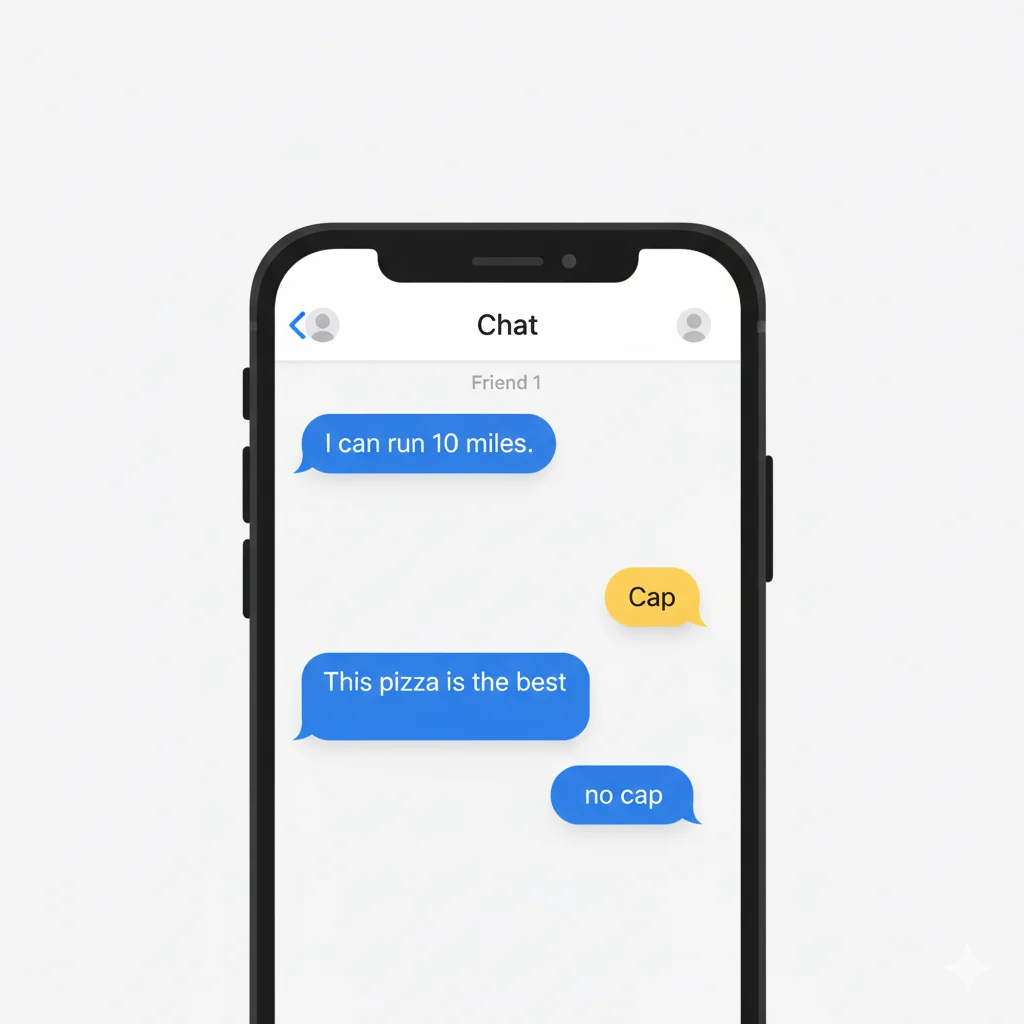
Cap vs. Other Slang Terms (Comparison Table)
To help you better understand, here’s a quick comparison:
| Slang Term | Meaning | Example |
|---|---|---|
| Cap | A lie or exaggeration | “He said he’s rich—cap.” |
| No Cap | Truth, serious, not lying | “That was the best movie I’ve seen, no cap.” |
| Facts | Agreement with truth | “That game was crazy chaotic.” → “Facts.” |
| Bet | Agreement or confirmation | “Wanna hang out later?” → “Bet.” |
| Fr (For Real) | Emphasis on truth | “That’s wild, fr.” |
Why Is “Cap” So Popular?
The word “cap” blew up for a few reasons:
- Rap culture influence – Rappers often use “cap” and “no cap” in lyrics.
- Memes & TikTok – Viral trends boosted its popularity.
- Short and catchy – Easy to type and remember.
- Fits Gen Z humor – Quick, ironic, and playful.
In today’s digital conversations, “cap” works almost like a universal code word for spotting lies or calling out exaggeration.
How to Use “Cap” Without Sounding Awkward
If you’re new to slang, you might worry about using “cap” wrong. Here are a few tips:
✅ Use “cap” when calling out something fake or exaggerated.
✅ Use “no cap” when you want to emphasize truth.
✅ Pair it with other slang like “fr” or “facts” for authenticity.
❌ Don’t overuse it—it can sound forced.
Good Example:
- “That’s the best burger I’ve had, no cap.”
Awkward Example:
- “I’m studying for my exam, no cap.” (Unnatural context.)
Variations and Related Phrases
- Capping → Present tense, lying or exaggerating.
- Stop the Cap → A way of saying “Stop lying.”
- Big Cap → A big or obvious lie.
- Capper → A person who lies often.
Cultural Impact of “Cap” in Music and Media
- Featured in rap lyrics by Future, Young Thug, and others.
- Widely used on Twitter (X) and TikTok captions.
- Meme culture: “Stop the cap” memes became viral.
“Cap” isn’t just a slang word anymore—it’s a cultural symbol for calling out dishonesty.
FAQs About “Cap” Meaning in Slang
Q1: What does “cap” mean in slang?
A: “Cap” means a lie or exaggeration.
Q2: What does “no cap” mean?
A: It means “for real,” or “I’m being honest.”
Q3: Is “cap” used only by Gen Z?
A: No, it’s used across all ages but is most popular among Gen Z and Millennials.
Q4: Can “cap” mean something else?
A: Outside of slang, “cap” can mean a hat, limit, or a cover. Context is important.
Q5: Who started “no cap”?
A: It comes from hip-hop culture and was popularized by rappers like Young Thug and Future.
Conclusion
Slang like “cap” shows how internet and hip-hop culture shape modern communication. Whether you’re saying someone is “capping” or emphasizing truth with “no cap,” this phrase has become a universal tool for online conversations.
The next time you hear “stop the cap” or “no cap,” you’ll know exactly what it means—and how to use it yourself.


